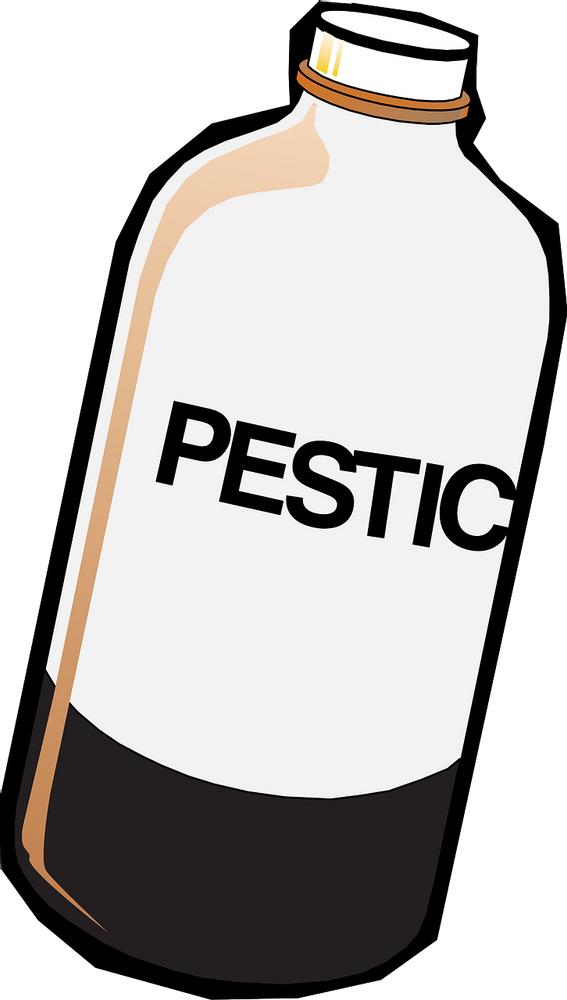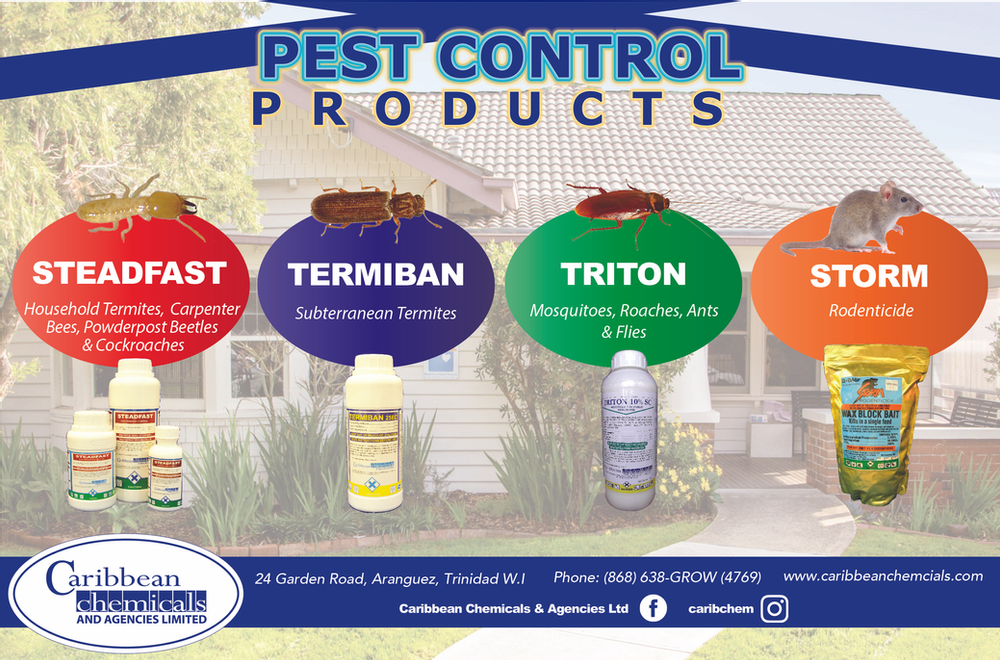BUG-Off! Volume 1, Issue 2 – July 2020
Author: Anthony Rostant, PMATT Chairman
I would like to start by reassuring the Allied Members of the Pest Management Association of Trinidad and Tobago that a change in regulations would not necessarily mean a decrease in sales of products and would not mean that all pesticides and concentrates would be off-limits to the public. Pests will always be a problem that require control, but the misuse and abuse of toxins by untrained – and in many cases uneducated persons, must come to an end.
Endangerment of Public Health!

How many times a day in this country does the owner of a small food establishment, whether it is a grocery, restaurant or food catering business, apply pesticides of some kind for themselves, rather than employing a legitimate pest management firm and trained pest operator. How many times a day does a homeowner have their gardener or handyman – who may not be able to comprehend or even read the pesticide label, apply pesticides in the garden, rather than employing a professional landscape maintenance company. How often do unscrupulous contractors carry out foundation treatments themselves with inappropriate formulations.
Who is Endangered?
EVERYONE and EVERYTHING! Consumers, homeowners, neighbours, children, pets, wildlife, the natural environment and the nation’s built-wealth.
The Real and Present Dangers!
How are these practises dangerous, you ask. I seriously doubt that the average layperson has all the PPE that is required, so in the first instance it is the users themselves, the housewife, the labourer, the shop keeper. You would also be surprised to know the difficulty many people may have in understanding a pesticide label and the mixing requirements, which may vary between target pests, method of application, site and weather conditions or type of equipment being used. Then there is the ‘Trini’ mentality. “If one tablespoon per gal is good, then two must be better and three is the best.” The untrained person also has no clue as to the dangers of increased toxicity that comes from overdosing and the mixing all fashion of cocktails and may not be cognisant, when applying, of the contamination of work surfaces, utensils, food or neighbouring properties. The unseen, negative impact to public health is staggering.
What Products Should be Sold Directly to the Public?
Some low toxicity (class iv) pesticides, organics and naturals like Diatomaceous Earth, ready-to-use consumer products: household aerosols, mosquito coils, ectoparasitic shampoos & preparations, botanicals (citronella oil and candles) and roach and ant bait stations, etc.
How Can the Existing Situation be Remedied?
Like everything else, it cannot be looked at or treated with in isolation. It would require that supportive legislation be simultaneously put in place to ensure compliance in all sectors. This means that regulation will be required to make the following mandatory:
- All applicators (pest management and agricultural) should attend and pass the required training courses to gain certification.
- All public buildings (offices, factories, schools, food establishments, hospitality establishments, healthcare facilities, etc.) must have registered operators providing scheduled service.
- That any and all applications of a class Ia, Ib, II & III pesticides only be carried out by trained applicators.
- That termite prevention must be carried out on every new construction by a registered operator that can provide a certificate of warranty.
- That the sale and conveyance of any building would be subject to an inspection for structural pests, and if found necessary, the required treatments be carried out.
What Will This Accomplish:
It will ensure that the work required to preserve the public’s health, the environment and the nation’s built-wealth, is carried out by trained professionals that can be held accountable and provide the traceability of pesticide sales and usage.
It is the Vision of the Pest Management Association of Trinidad and Tobago – PMATT, to transform the Pest Management Industry where consumers and the public in general are assured of an environment that is safe and healthy, through the safe use and application of pesticides and other non-chemical treatment procedures by trained and legitimate Pest Management professionals.
PMATT – Serving People, Preserving the Environment.




0 Comments